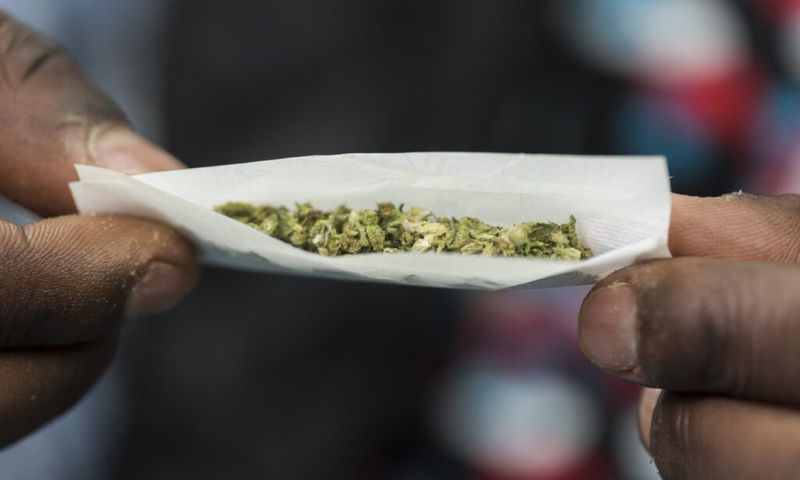In recent years, Nigeria has seen a troubling rise in the use of synthetic drugs—particularly a substance widely known on the streets as “Colorado” or “Colos.” Though often mistaken for a cheaper or safer version of marijuana, Colos carries dangerous, sometimes life-threatening consequences.
The slang “on Colos” has entered popular culture to describe people acting abnormally—staggering, hallucinating, or losing touch with reality—signs that often follow the use of this synthetic substance.
What is Colorado (Colos)?
Colorado, or Colos in local slang, is a synthetic cannabinoid—a man-made drug designed to mimic THC, the active ingredient in natural cannabis. Unlike marijuana, Colos is not plant-based. It’s made by spraying lab-manufactured chemicals onto shredded leaves or similar material. These chemicals bind to the same brain receptors as THC but often do so more aggressively and unpredictably.
Because the formulas used in making Colos vary widely—and are largely unregulated—the drug is highly unpredictable and dangerous. Some batches have been linked to extreme reactions such as seizures, psychosis, and organ failure.
Short-Term Side Effects of Smoking Colos
Physical Effects:
- Breathing problems: Users often experience coughing, wheezing, and shortness of breath.
- Rapid heartbeat and dizziness: These can pose serious risks, especially for those with heart conditions.
- Dry mouth, red eyes, and appetite changes: Similar to marijuana, but often more intense.
Mental Effects:
- Euphoria and altered perception: A strong but unstable “high.”
- Anxiety, paranoia, and hallucinations: Colos can cause intense mental distress and irrational behaviour.
- Poor judgment and coordination: Leading to accidents, fights, or unsafe decisions.
According to Dr. Adebayo Adekunle, who spoke to ThisDay Live, common symptoms include:
“Anxiety, mood swings, hallucinations, vomiting, psychosis, and even organ failure. The effects kick in almost immediately.”
Long-Term Health Risks
Lung Damage
Prolonged smoking of Colos can damage the lungs, leading to chronic bronchitis, persistent coughing, and reduced lung capacity.
Mental Health Issues
- Anxiety and depression: Ongoing psychological effects are common.
- Cognitive decline: Long-term users report memory loss and poor concentration.
- Psychosis: Prolonged use increases the risk of developing severe mental disorders.
Heart and Circulation
- High blood pressure and elevated heart rate: These strain the cardiovascular system.
- Risk of heart attack and stroke: Especially dangerous for habitual users.
Social and Behavioural Impact
Damaged Relationships
As addiction deepens, users often isolate themselves and push away family and friends.
Loss of Motivation
Colos abuse has been linked to a drop in ambition, academic failure, and poor work performance.
Legal and Health Consequences
In Nigeria, the use, possession, and distribution of synthetic drugs like Colos is illegal and punishable by law. Offenders risk arrest, fines, and imprisonment.
From a health standpoint, overdose is a real and growing threat. Symptoms may include seizures, unconsciousness, and even death without prompt medical attention.
How to Quit Smoking Colos
1. Acknowledge the Problem
Recovery begins with recognition.
2. Seek Professional Help
- Therapy and counselling: Learn the triggers and build coping strategies.
- Support groups: Peer support is powerful in the recovery process.
- Medical treatment: In some cases, medication can help manage withdrawal symptoms.
3. Build a Support Network
Friends, family, and mental health professionals play a key role in helping users stay clean.
Prevention and Awareness
Education is the strongest weapon against drug abuse. Schools, media, and community programs must work together to spread awareness of the true risks of Colos.
Offering healthy alternatives—like sports, music, art, and skill-building—can steer youth away from drugs and toward positive outlets.
Conclusion
The rise of synthetic drugs like Colos is a growing public health concern in Nigeria. While the slang “on Colos” might sound humorous or trendy, the reality is devastating. By educating communities, supporting those affected, and offering healthy alternatives, we can fight back against the spread of this dangerous substance.
If you or someone you know is struggling with drug use, seek help. Recovery is possible—and help is available.





